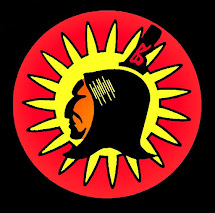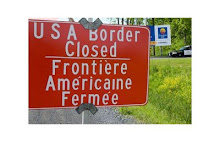Wednesday, May 27, 2009
Apology Not Accepted
We are already beginning to hear the litany of excuses from the Congressmen representing the Western New York districts around Native communities. I hope none of our people buy their bullshit when they claim, regarding their House votes for the Prevent All Cigarette Trafficking (PACT) Act, that they didn't realize how devastating shutting down retailers that use the mail for delivery would be. Brian Higgins tried that line on us when he voted as a New York State Assemblyman to try to shut us down with State legislation. We need to clearly draw a line in the sand for these guys. You are either with us or against us. As the private sector economy of the Seneca Nation is destroyed by these arrogant, self serving career politicians, we need to hold them accountable. This goes for Schumer and Gillibrand before the Senate votes as well. These Democrats want to wear their human and civil rights credentials on their shirtsleeves all while they crush any success our communities have. Oh, they'll stand in lock step with us when we serve their needs. Get out the vote, endorse our candidate, help us with our census, help us secure the borders, create tourism for us, give us slot dollars. These guys will travel the world preaching the virtues of democracy and private sector development while not just promoting, but dictating, Socialism in Indian Country. It is no small coincidence that gaming has been legislated and shoved down our throats. These enterprises are only run by the tribes. The powers that be don't want to have to deal with Indians. We have heard this constant chorus of Nation to Nation and government to government relations for so long that we now sing it more than them. In doing so the individual Native person, the private sector of Indian Country, is taken out of the picture. It is much more convenient for Rahnatakias Obama and his minions to deal with a handful of tribal leaders than 1,000,000 Indians. In Oneida and Onondaga only the "Nation" is in business. The State and the feds only have to wheel and deal (or drag into court) a couple of guys to get their way with them. How many remember the look on the face of Judith Hard (from Governor Pataki's office) when she had to face only a roomful of angry Indians during our last go-around?
We need to also hold some others accountable. Those who claim to be leaders or representatives for Native people and Native issues also need to be dragged out on the mat. NCAI and USET cannot be allowed to continue to promote themselves and their usefulness to Native people if they only serve the needs of a few bought and paid for tribes, the Indian gaming industry and the state and federal governments. As NCAI meets in Seneca territory, in a couple of weeks, they need to be put on notice. If NCAI and USET can't support the Seneca people, the Seneca people should be done with them. While we are at it, perhaps someone should produce a tally on how much money goes to these organizations from our communities and do an honest cost benefit analysis. Not just what have you done for me lately; what have you ever done for us?
It needs to be made clear that the PACT Act is legislation aimed at specifically shutting down Native businesses. An argument can be made whether or not it violates our sovereignty or some overstated "treaty rights", but there is no question about the negative impact it will have on the economies of Native communities and no apologies will be accepted from anyone who helps make this happen.
Friday, May 22, 2009
The PACT Act Will Not Necessarily End the Native Tobacco Business, It Will Criminalize It!
What started as selling cigarettes out of converted house trailers and tar paper shacks has become a sophisticated industry ranging from quality manufacturing to a retail sector that exclusively caters to end user buyers throughout the continent. The Seneca and Tuscarora people turned a tobacco industry with no future, or at best a precarious one, into a legitimate economy that has had nothing but a positive effect on the Western New York economy. The transformation of a crude, cash only, under the table, no frills retail sector, that would buy from anyone with product and sell to anyone willing to buy, into an industry dominated with quality Native brands, full service convenience stores and other innovative sales, marketing and promotion strategies is a remarkable one. This kind of backward and parallel integration of an industry would be the model for struggling economies if it were not being done exclusively by Native people owed in no small part to their autonomy and sovereignty. Jealousy, racism and general ignorance marked by an unbroken chain of historical oppression will never allow this success to be enjoyed by Native people. And so all the efforts to bring legitimacy to an otherwise legal, albeit socially condemned, industry will have politicians and legislators from Buffalo to Albany and New York to Washington working overtime to kill it.
Now the outright assassination of an industry is tough for these guys. It's kind of like their "war on drugs" or their "war on terror". First they'll characterize as many people as possible (in this case Natives) as criminal and unseemly, then they will attempt to convert or otherwise take out the big players. But once the business reverts back to operating in the shadows it starts to get very difficult. When all the incentive for legitimacy and self-regulation is eliminated all bets will be off. Conflicts with law enforcement will once again be a fact of life, something almost unheard of these days. Bulk sales to individuals looking to cash in on bootlegging will return. High quality product will be reduced to cheap, unbranded bulk manufacturing. Seizures will be constantly reported but they will represent the acceptable losses for an industry once again relegated to operating in the shadows. All this will not be borne out of opportunity but rather necessity.
With U.S. law makers poised to adopt legislation that will attempt to wipe out 80% of the Native tobacco business, clearly not everyone will just lie down. A few will quit; just sit back and live off what ever nest egg they have been able to build during the good years. Some will try to diversify and get in to new types of businesses, most of whom will fail. But another select few will figure out how continue. These will be the future models for the Native tobacco sellers. Now with a much broader knowledge of the industry, away from the scrutiny of state, federal and tribal authorities, a whole new economy will emerge. Not one any of us want but it will be all that is left. All the tribal licensing and collective revenue generation that was intended to somehow keep the outside interests from harming our businesses will be shattered. Self-regulation will have a price tag. Words like smuggling and money laundering will continue to be frowned on from the outside social elite, but will be common on the rez. No "Trail of Tears" or "Rosewood" tragedy will follow here, just a giant step backward for Native people; back to a time we worked so hard to get out of. On a good note it was in those times that we learned to assert our sovereignty. As chaos is forced back upon us, we'll have to see what opportunities will be realized.
Wednesday, May 6, 2009
When is a Fight Worth Fighting?
The US Congress is looking to deal a crippling blow to Native tobacco retailers; in particular those retailers who sell tobacco and use the US mail for delivery. Under the guise of "saving the children", the Prevent All Cigarette Trafficking (PACT) Act specifically moves to make tobacco non-mailable. Claims that tens of thousands of children order cigarettes through the mail have fanned the flames of this legislation that targets Native retailers almost exclusively. Much of the momentum that this measure enjoys is due, in no small part, to the fact that it appears that no resistance is being offered up by Native people.
The Seneca Nation is home to the largest number of mail order tobacco shops. It is estimated that 80% of their retail tobacco sales are delivered by mail. The Seneca Nation which has adopted the most strict and heavy handed stamping/tax/pricing/inspection scheme of the Nations involved in the business (complete with tobacco police with badges and uniforms) generated over $30,000,000 in 2008 from the individual retailers. 80% of that will disappear with the death of the mail order retailers. The 19 wholesaler/stamping agents of the Seneca Nation will likely reduce to three. All of the brands manufactured in Seneca territory will fail and with big tobacco throwing Native retailers under the bus, a reliable source of product for the brick and mortar stores will be almost impossible to come by. The Native private sector tobacco business represents the largest employer in Western New York and contributes more to the Native and surrounding economy than any other industry, including gaming. This will change when 80% of it goes away.
You would expect both the individual Native tobacco businesses and the Seneca Nation (that has learned so much from the State about how to fleece them) to launch a full scale media and lobbying effort to debunk all the misinformation used to push this act and defend their businesses. But you would be wrong. The Seneca Nation Senior Policy Advisor and Legal Counsel, Rob Porter, believes this fight is not worth fighting. As such he has discouraged the Nation's involvement in any attempts to resist or even speak out against the PACT Act. He has also criticized the handful of retailers that have been trying to put a program together to fight the act, calling it "foolish and wasteful" and referring to their legal counsel as a "white lawyer" "selling snake oil". Although Mr. Porter is advising no action regarding the PACT Act he has expressed his very deep concern that non-compliance by the retailers to the tobacco laws he wrote might "affect... the business supply lines." Thus he is calling for "Vigorous Nation enforcement" by their tobacco police to protect the Nation and specifically "cutting off supply to illegally operating retailers/stamping agents."
So to make this clear, Porter is recommending no action against the federal legislation that is about to destroy the Seneca Nation's private sector economy, but is calling for "Vigorous Nation enforcement" against their own people instead. The ridiculousness of Rob Porter's advice seems almost unworthy of comment. The fact that there will be little left to fleece seems to have completely eluded him.
What Rob and all those retailers on the sidelines who hope someone else will save the day for them or just figure the fight is not worth fighting don't realize is that win or lose we still have got to be heard. To go down without a fight is just plain giving up. To not even speak up, lets those who continue to stomp on any success we have, do it guilt free. We have to shame them. We have to call out their lies, expose their bullshit stats and call them for what they are. When anti-Indian legislation is proposed, we have to expose it for what it is. We can't let them try to claim it is for the children or for fire safety or to prevent terrorism. If we quietly throw the towel in then it looks like we were wrong all along. If we refuse to shame those who work against us then shame on those who just sat by and watched. When our kids and grand kids ask us why we let this one go without a fight, what will be the answer? For Rob Porter, your success is the private sector's failure so let's hope you fail or pay dearly for your success.
What gets lost in all this is that we can fight this and the reality is that we have pushed back and won before. There are several hundred legislators in Washington that have no idea who we are or what we do. It is our job to make them see us and hold them accountable for their actions. I do believe there are plenty of them that wish we would just disappear, but we only need to arm a few of them to oppose legislation aimed at our destruction. The Seneca people must lead this charge not just because it is winnable, but because it is a fight worth fighting. Who knows you might even win your Nation back.
Subscribe to:
Comments (Atom)













![-[]-[]-/\-[]-[]-](https://blogger.googleusercontent.com/img/b/R29vZ2xl/AVvXsEjLoXmKO8PJVQ5pZ2q7GX7nFKw8H2tb28dxt-o10FUBNtOGszWhWoLB7tgjtMgtISpuSxNW3fcDxfuSS2DqojsdjNJ1lVggyUS374PnzsDbOhk4ukvtTunFQcyfkckZeBzcLbri4LDYN_E/s214/29-03-A-voice-from-the-Akw-.jpg)




